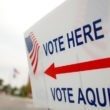“Personnel” Problem—In an Op-Ed on March 7, Attorney General Alberto Gonzales dismissed the unexpectedand unexplainedfiring of eight U.S. Attorneys as an “overblown personnel matter.” Don’t tell that to members of Congress. “I can’t even tell you how upset I am at the Justice Department,” said Senator John Ensign (R-NV). “One day there will be a new attorney general, maybe sooner rather than later,” said Arlen Specter (R-PA), the ranking member on the Senate Judiciary Committee.
After six of the eight dismissed prosecutors (the New York Times dubbed them “the Gonzales Eight”) testified on Capitol Hill, under a subpoena or threat of subpoena, it became obvious that Attorneygate had reached into the upper echelons of the White House and Congress. Two Republican lawmakers from New Mexico, Senator Pete Domenici and Representative Heather Wilson, along with the former top staffer on the House Ethics Committee, had called at least two of the prosecutors to inquire about the timing and substance of ongoing federal investigations, in probable violation of Congressional rules. Karl Rove personally intervened to oust the U.S. Attorney in New Mexico, David Iglesias. Another U.S. Attorney, Arkansas’s Bud Cummings, was threatened by a top DOJ official and pressured not to testify. It soon came to light, via a study by two professors of communications, that the DOJ has been seven times more likely to investigate or indict Democrats than Republicans since the Bush administration came to power.
Under pressure from Congress, the administration endorsed a law prohibiting the attorney general from indefinitely appointing interim U.S. Attorneys, a power Gonzales acquired from an obscure provision in the reauthorized USA Patriot Act last year. But that surely won’t be the end of this matter. It’s safe to assume that Gonzales will be back on Capitol Hill testifying very soon.
Beyond Walter Reed—The fallout from news reports of dilapidated conditions at the Walter Reed Army Medical Center has been quick and dramatic. Congress held at least four oversight hearings in one week. The Bush Administration created eight overlapping commissions and investigatory bodies. The general in charge of Walter Reed was fired, the Secretary of the Army resigned, and the Army’s surgeon general, Lt. Gen. Kevin C. Kiley, was forced out. Walls have been repainted, facilities renovated and lofty promises made.
But the scandal is spread more widely than the mildew in Building 18. Military and veterans hospitals across the country have many of the same problems as Walter Reed, if not worse. According to the Washington Post, these include: “indifferent, untrained staff; lost paperwork; medical appointments that drop from the computers; and long waits for consultations.” Rooms at the Naval Medical Center are infested with fruit flies and littered with trash and open syringes. Fort Campbell has asbestos; Fort Knox has peeling paint, mold and broken windows. Even more serious, the VA has a backlog of 400,000 benefit claims, rising every minute as Iraq and Afghanistan veterans are discharged in the thousands with post-traumatic-stress disorder. Wars abroad may continue for years to come. And the battle for better health care back home will take much longer than one news cycle.
Holt On—In our March 1 issue, we spotlighted New Jersey Congressman Rush Holt’s legislation (HR 811) requiring electronic voting machines to produce a voter-verified paper record. We’ve long editorialized that ballots marked by voters are always preferable to “ballots” marked by computers; but several readers took us to task for not being more critical of the Holt bill. Many election reform advocates are calling the proposed legislation “HAVA II” after the counterproductive Help America Vote Act, which was passed by Congress in 2002. The bottom line for these reformers is that Holt’s bill mandates “paper trails” instead of paper ballots and doesn’t ban the touch screen voting machines, known as DREs.
Election reform advocates are suggesting several important amendments to the Holt bill, but at least one member of Congress, Representative Maxine Waters (D-CA), has said she will withdraw her support from HR 811. “We have got to take a strong stand now against all the machines and go for the paper ballots,” Waters told an audience in February. And when asked if he would support eliminating DRE voting machines, John Edwards became the first presidential candidate to unambiguously reply, “Yes!”





0 Comments